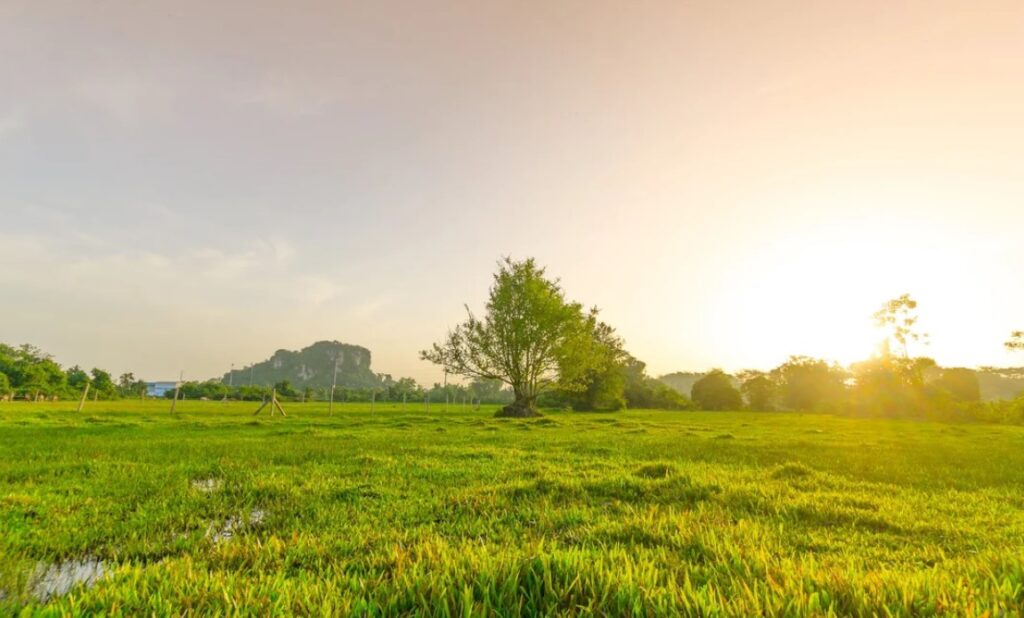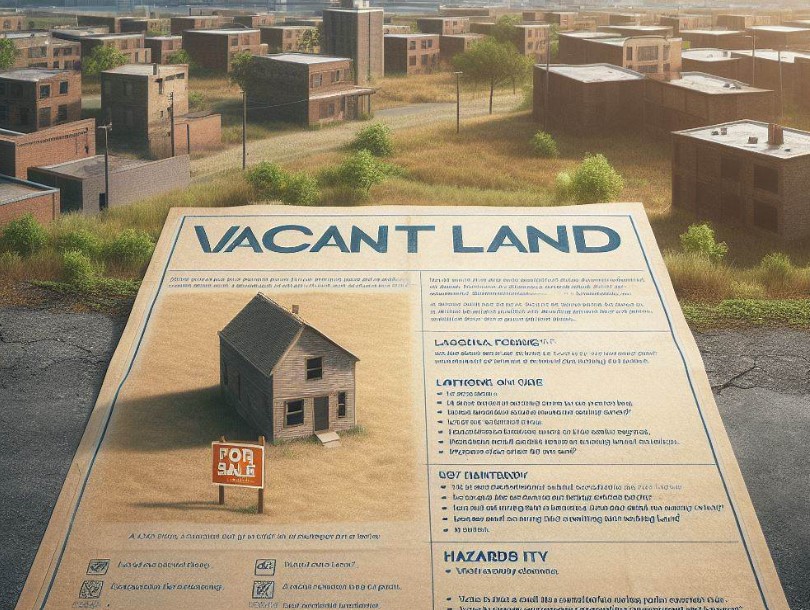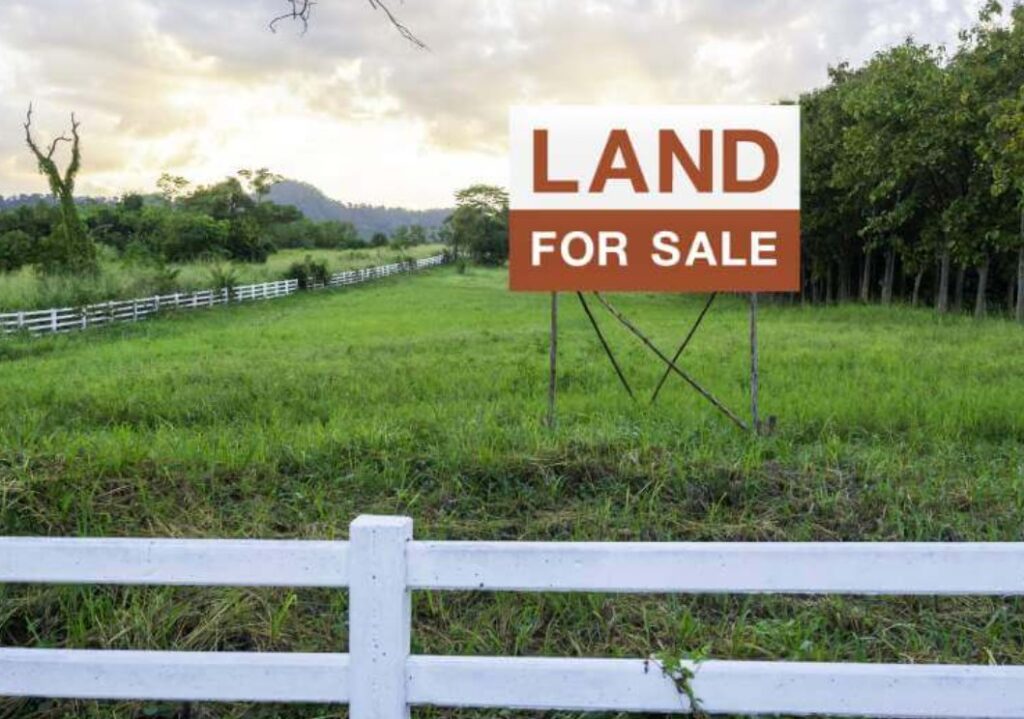The question, Do I Need Insurance On Vacant Land? is one that many landowners often ponder. When you own vacant land, it might seem unnecessary to insure it, as it lacks physical structures or operations that typically necessitate insurance. However, this assumption can lead to significant legal and financial risks. Understanding the importance of insuring vacant land is crucial for protecting your investment and peace of mind.
Key Takeaways
- Vacant land insurance protects against liability and potential legal issues.
- Coverage varies based on location, land features, and intended use.
- Often overlooked, insurance for vacant land is a critical aspect of landownership.
Do I Need Insurance On Vacant Land?
Yes, insurance on vacant land is essential. While vacant land may not have structures that risk damage from fire, theft, or natural disasters, it carries liability risks. If someone is injured on your property, you could be held responsible. Vacant land insurance is designed to protect landowners from such liabilities.

Reasons to Insure Vacant Land
Liability Protection
Even if your land is undeveloped, accidents can happen. Insurance offers protection against claims if someone is injured on your property. This coverage is vital, especially if your land is accessible to the public.
Legal Peace of Mind
Owning uninsured land can lead to legal complications. Insurance provides a safety net against potential lawsuits, ensuring that you are prepared for unforeseen legal challenges.
Understanding Vacant Land Insurance
Vacant land insurance is a specific type of policy that covers land not used for business or residential purposes. It’s different from other property insurance types due to the absence of structures.
Coverage Aspects
What Does It Cover?
This insurance typically includes liability coverage for injuries or accidents that occur on the property. It does not cover any form of structure or personal property.
What It Does Not Cover
Vacant land insurance does not cover damages related to structures, as there are none. It also doesn’t cover land used for farming or commercial purposes; these require different types of policies.
Factors Influencing Insurance Needs
The need for vacant land insurance varies based on several factors. These include the location of the land, its size, and the natural features present.

Location and Accessibility
Urban vs. Rural Land
Insurance needs can differ based on whether your land is in an urban or rural area. Urban land might have higher liability risks due to more frequent public access.
Accessibility
The easier it is to access your land, the higher the potential liability. Land near highways or public spaces might require more comprehensive coverage.
Intended Use and Risk Assessment
How you plan to use your vacant land significantly impacts the type of insurance you need. Recreational use, future development plans, or leasing the land for activities can all influence insurance requirements.
Recreational Use
If your land is used for recreational purposes like hunting or camping, liability risks increase, necessitating appropriate coverage.
Development Plans
Land intended for future development may require different insurance as the risk profile changes with construction activities.
Comparing Insurance Providers
Choosing the right insurance provider for your vacant land involves comparing policies, assessing coverage limits, and understanding exclusions.
Coverage Limits and Exclusions
Different insurers offer varying coverage limits and exclusions. It’s essential to understand what is and isn’t covered under your policy.
Reputation and Reliability
Researching the insurer’s reputation and financial stability is crucial. Choose a provider known for reliability and good customer service.
What Is Vacant Land In Insurance?
Vacant land in insurance refers to a property without any structures or significant improvements. It’s essentially undeveloped land. In the context of insurance, this classification is important because it changes the nature of the risk and the type of insurance policy required.

Vacant land insurance typically provides liability coverage, protecting the landowner if someone is injured on the property, but it does not cover buildings or other structures.
What Does Vacant Mean To Homeowners Insurance?
For homeowners insurance, “vacant” signifies a property that is devoid of inhabitants and personal property. This status impacts insurance because standard homeowners policies often limit or exclude coverage for vacant properties due to the higher risk they present.
For instance, a vacant home might be more susceptible to vandalism, theft, or undetected damage, like water leaks. Therefore, property owners may need to purchase specialized insurance policies for vacant homes to ensure proper coverage.
Do You Have To Have Insurance On Land In Texas?
In Texas, there is no legal requirement to insure vacant land. However, it is highly recommended to protect against liability risks. Texas, like many states, operates under premises liability laws, meaning landowners can be held liable for injuries that occur on their property, regardless of the land’s development status.

Therefore, while not legally mandated, having insurance on vacant land in Texas is a prudent decision to mitigate potential legal and financial risks.
Do I Really Need Vacant Land Insurance?
Yes, you really need vacant land insurance, primarily for liability protection. Even though your land might not have structures or significant assets, you could still be held liable if someone is injured on your property.
Vacant land insurance safeguards you from potential lawsuits and associated financial losses. This coverage becomes even more critical if your land is easily accessible or located near populated areas where the likelihood of someone entering the property increases.
Where To Buy Vacant Land Insurance?
Vacant land insurance can be purchased from various insurance providers. Many companies that offer homeowners or property insurance also provide policies for vacant land. It’s important to shop around and compare policies from different insurers to find one that suits your specific needs.

Online insurance marketplaces can be a good starting point for comparing quotes. Additionally, working with an insurance broker who understands your specific requirements and risks associated with your land can be helpful in finding the right policy.
Conclusion
Insuring vacant land is not just a prudent financial decision; it’s a crucial step in safeguarding against unforeseen liabilities and legal issues. Vacant land insurance provides peace of mind, knowing that you’re protected from potential risks associated with landownership.
When selecting insurance, consider factors like location, intended use, and the specific risks associated with your property. Always choose a reputable insurance provider and understand the details of your policy to ensure adequate protection.
People Also Ask
What if someone gets hurt on my land without my permission?
Yes, you can still be held liable if someone is injured on your land, even without your permission. This is known as premises liability, and it’s a key reason why having vacant land insurance is important.
How does vacant land insurance differ from homeowners insurance?
Homeowners insurance covers structures (like your home) and often includes personal property and liability coverage. Vacant land insurance, on the other hand, exclusively provides liability coverage for land without any structures.
Does this insurance cover illegal activities on my vacant land?
No, vacant land insurance does not typically cover illegal activities conducted on your property. The coverage is mainly for accidental injuries or incidents that are not related to unlawful activities.
Is vacant land insurance required by law?
While not typically required by law, it’s highly recommended to protect yourself from liability. In some cases, if you have a mortgage on the land, your lender may require you to have insurance.
A multifaceted professional, Muhammad Daim seamlessly blends his expertise as an accountant at a local agency with his prowess in digital marketing. With a keen eye for financial details and a modern approach to online strategies, Daim offers invaluable financial advice rooted in years of experience. His unique combination of skills positions him at the intersection of traditional finance and the evolving digital landscape, making him a sought-after expert in both domains. Whether it’s navigating the intricacies of financial statements or crafting impactful digital marketing campaigns, Daim’s holistic approach ensures that his clients receive comprehensive solutions tailored to their needs.









